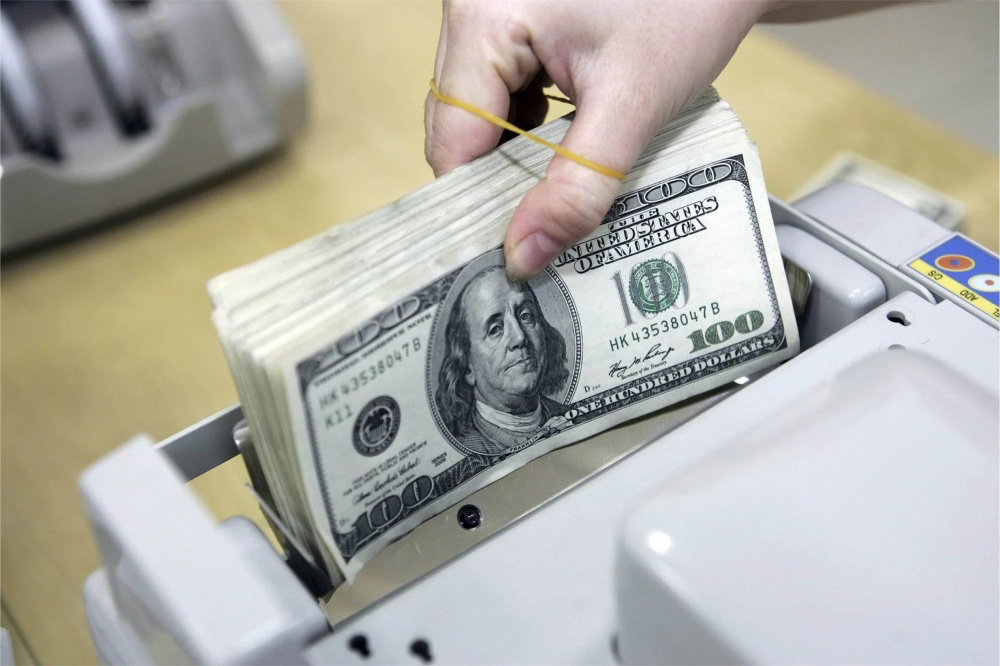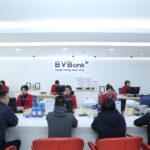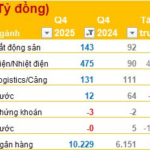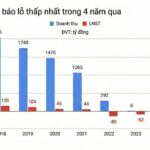Should we abandon a pillar in the fight against dollarization?
For over two years, high global inflation, especially in the US, has forced the Fed to tighten monetary policy, mainly through interest rate hikes. Despite a recent slowdown in inflation, the Fed has maintained interest rates at the same level since September 2023. The Fed’s high-interest rates and volatile dollar index, coupled with global economic uncertainties, have negatively impacted other economies, including Vietnam, particularly in terms of currency and exchange rates.

Maintaining USD interest rates at 0% has allowed the SBV to purchase more USD for its foreign reserves.
In response to these pressures, some have suggested adjusting interest rates on US dollar deposits to above 0%, arguing that it could help narrow the interest rate gap between the VND and USD and mobilize resources for economic development. However, experts believe that such a policy change would cause more harm than good in the short, medium, and long term.
According to Dr. Nguyen Duc Do, Vice Director of the Institute of Finance and Economics (Academy of Finance), the fight against dollarization is a correct policy, and it is evident that dollarization in Vietnam has significantly decreased in recent years. To reduce dollarization, the SBV has implemented several measures over the last decade, including maintaining low inflation and stable exchange rates and introducing a 0% interest rate on US dollar deposits. These policies have made holding USD less attractive compared to the VND, leading to a reduction in USD demand and helping the SBV purchase foreign currency to increase its foreign reserves to $100 billion.
Sharing this view, Prof. Tran Tho Dat, a member of the Monetary and Financial Policy Advisory Council, emphasized that the 0% cap on USD deposit interest rates since 2015 has been a key pillar in the fight against dollarization, significantly contributing to enhancing the VND’s position and supporting monetary and exchange rate stability. As a result, dollarization in the economy has declined, and USD resources in the population have been converted into capital for economic development, while the foreign exchange market has been managed more effectively. Additionally, the implementation of a flexible exchange rate based on the central exchange rate has better absorbed shocks and reflected market supply and demand conditions. The expectation of a continuously appreciating exchange rate has diminished, and the shift from a deposit-lending relationship to a foreign currency buying-selling relationship has given the regulatory authority more control over foreign currency mobilization to meet domestic needs.
Preventing a “cooled-down” investment channel from heating up again
While the 0% USD interest rate policy has been successful, the economy still faces pressures from uncertain global economic growth prospects. Factors such as the Fed’s high-interest rates, the narrowing interest rate differential between the VND and USD, and the persistent demand for USD continue to impact the foreign exchange market and exchange rates.
| At a meeting with economic experts organized by the SBV in mid-July, Deputy Governor Pham Thanh Ha stated that the 0% USD interest rate policy was one of the synchronized solutions implemented by the SBV to stabilize the foreign exchange market, anchor exchange rate expectations, and enhance the VND’s position. Thanks to this policy, the exchange rate and foreign exchange market have remained stable. Dollarization in the economy has decreased significantly (foreign currency deposits as a percentage of total means of payment have fallen from 11.06% in 2014 to approximately 6.05% as of June 2024; foreign currency loans as a percentage of total loans have shown a decreasing trend). |
In this challenging context, Prof. Tran Tho Dat argued that any changes to the 0% USD interest rate policy or a retreat from the fight against dollarization could trigger a resurgence in the population’s foreign currency hoarding behavior, potentially reigniting a “cooled-down” investment channel and negatively impacting macroeconomic stability, inflation, and the VND’s position.
Dr. Nguyen Duc Do shared this assessment, adding that a slight adjustment to USD interest rates would have a negligible impact on attracting USD deposits. However, a significant increase in interest rates to attract USD deposits could encourage speculative USD buying and holding, leading to adverse effects such as a sharp rise in exchange rates and reduced control over exchange rates by the SBV, ultimately impacting interest rate management and reversing the progress made in the fight against dollarization.
A banking expert also emphasized that maintaining USD interest rates at 0% has effectively discouraged foreign currency hoarding and even encouraged individuals to sell USD and deposit VND in savings accounts or invest in production and business activities. “This is the most effective way to mobilize USD resources for the economy,” the expert stressed.
In other words, while the fight against dollarization over the past decade has been positive, continuing this effort successfully in the next ten years requires persistence and determination. The experience of other countries suggests that the goal of de-dollarization is a long-term process that demands consistent policies. Sharing his perspective, Prof. Tran Tho Dat emphasized that to maintain the 0% USD deposit interest rate as a key pillar in the fight against dollarization, it is necessary to remain steadfast in the implementation journey, consistently considering it a supportive tool for monetary and exchange rate stability and macroeconomic stability. Additionally, a comprehensive set of policies and solutions should be implemented to enhance the VND’s position and reduce the attractiveness of holding USD. The principle of making VND holdings more advantageous than USD holdings should be consistently applied in interest rate and exchange rate management.
Dr. Nguyen Duc Do emphasized that mobilizing financial resources, including USD, should not rely solely on SBV policies. Institutional reforms and administrative procedure reductions to create a favorable business and investment environment are also fundamental solutions to encourage individuals to invest in production and business. Developing capital markets, such as bonds and stocks, is equally important in reducing dollarization in the economy.
Which bank offers the highest interest rate for online savings in early February 2024?
Beginning February 1st, 2024, several banks have been adjusting their interest rates downwards for savings accounts ranging from 1 to 24 months. Based on a survey conducted across 16 banks, the highest annual interest rate for online savings deposits at a 6-month term is 5%, while for a 12-month term, it is 5.35%.
4 Factors Putting Pressure on USD/VND Exchange Rate in Q1/2024
With the currency exchange rate fluctuating in the first few weeks of 2024, Mr. Ngo Dang Khoa, Director of Foreign Exchange, Capital Markets and Securities Services at HSBC Vietnam, highlights four factors putting pressure on the USD/VND exchange rate in Q1/2024…
Banks Sacrificing Profits to Support the Economy
In 2023, the question “which bank has the lowest interest rates?” is being talked about more than ever. With the prevailing difficult economic situation affecting individuals and businesses, in line with the directive of the State Bank of Vietnam (SBV), banks have unanimously sacrificed their profits by reducing lending rates and introducing credit packages with interest rates as low as 0%.


















